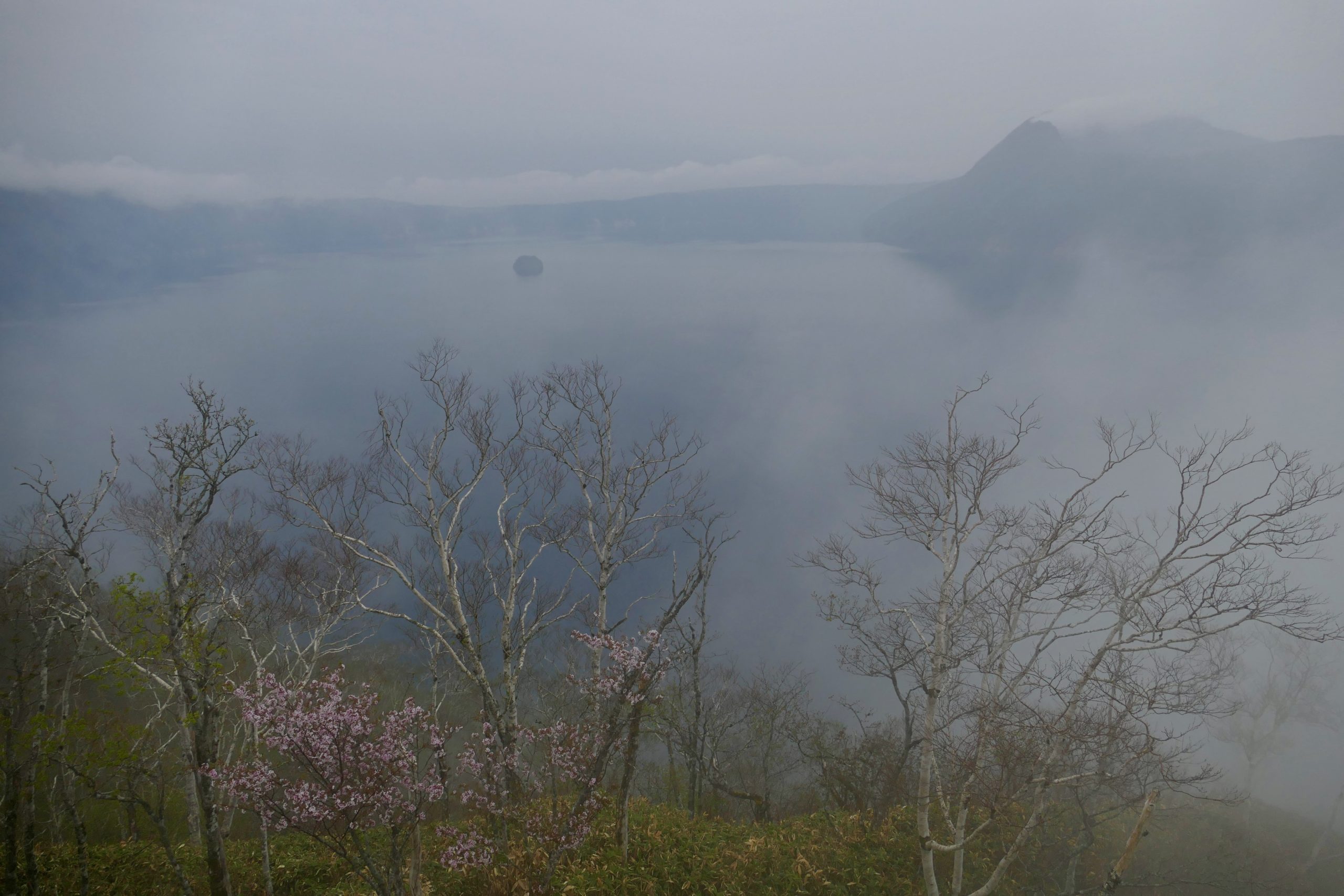The photo shows Lake Mashū in eastern Hokkaido, late on the misty Spring morning of 22 May 2017.
Complete with cherry blossoms, the scene was almost proverbially peaceful, serene, but…
Consider how this beautiful lake came into existence: via a violent eruption which occurred around 7,000 years ago – just “a moment ago”, geologically speaking.
The relevant volcano is not extinct.
The absence of armed human conflict is one kind of peace.
However ardently desired – and it is not always widely, ardently desired – this peace is never a perpetual state.
Then again, neither is any particular war.
Each war ends.
Humans’ appetite for peace or war waxes and wanes.
Prolonged, direct experience of war or “troubles” may, eventually, yield sufficiently widespread weariness, grief and disgust to help bring on the next peace.
Paradoxically, prolonged peace may be a prelude to the next war, in part because humans forget that peace is not simply self-sustaining.
And/or in part because “too many” humans in a given population have had no experience of war, and are thus more easily gulled by warmongers.
This post’s song with words comes from Mali, a currently-troubled African nation.
Its author and primary performer has long been a voice for peace.
I have loved Afel Bocoum’s Salam Aleikum ever since it appeared in 1999.
By that time he had been a member of Ali Farka Toure’s ensemble for 30 years, since Afel was 13.
Ali Farka Touré (1939-2006) was one of Africa’s seminal musicians, an arresting singer and singular guitarist.
Afel Bocum’s 1999 debut album as leader immediately established him as a remarkable songster-guitarist in his own right.
Its title – Alkibar – means “message of the great river”, and the album was beautifully recorded in his home village of Niafunké, on the banks of the Niger.
As with his mentor – who was at the time Niafunké‘s mayor – Bocoum’s songs are compelling, even to a listener who cannot understand the words, but Bocoum’s songs always have thoughtful lyrics.
Not surprisingly, he is a Muslim, as are most Malians.
“Salam Alekum” is a standard greeting uttered by millions of Muslims, worldwide, each day.
It means “May Peace be with you”.
In translation, the first line of Bocoum’s Salam Aleikum appears “standard”, formulaic:
May peace be upon our Muslim brothers
The very next line reveals the song’s much more humanist agenda:
May peace be upon you also, brothers of all horizons
(and – as this album’s equally fine concluding song makes explicit – Bocoum sees “sisters” as his equals. He is a particularly eloquent opponent of loveless, “arranged”/forced marriages. Wikipedia’s entry on him is painfully thin and very out of date, but I have not been able to find anything better, online)
